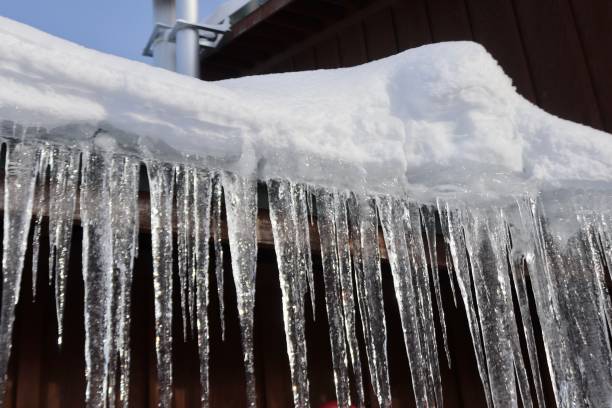Advice for Preventing Frozen Plumbing in Cold Weather: Expert Tips
Advice for Preventing Frozen Plumbing in Cold Weather: Expert Tips
Blog Article
The publisher is making several good pointers on the subject of How To Avoid Freezing Pipes in general in this content down below.

Winter can ruin your pipes, particularly by freezing pipes. Below's just how to stop it from taking place and what to do if it does.
Intro
As temperatures drop, the risk of icy pipelines rises, possibly bring about expensive repair work and water damage. Recognizing exactly how to prevent icy pipelines is essential for homeowners in cold environments.
Prevention Tips
Shielding susceptible pipelines
Wrap pipelines in insulation sleeves or utilize warmth tape to safeguard them from freezing temperature levels. Focus on pipes in unheated or outside locations of the home.
Heating techniques
Maintain indoor areas adequately heated, especially locations with plumbing. Open closet doors to enable cozy air to flow around pipes under sinks.
How to recognize icy pipelines
Try to find lowered water circulation from taps, uncommon smells or sounds from pipelines, and noticeable frost on revealed pipelines.
Long-Term Solutions
Architectural adjustments
Take into consideration rerouting pipelines far from outside wall surfaces or unheated areas. Add extra insulation to attics, cellars, and crawl spaces.
Updating insulation
Purchase top quality insulation for pipes, attic rooms, and wall surfaces. Appropriate insulation helps keep constant temperatures and reduces the threat of frozen pipelines.
Protecting Exterior Plumbing
Yard pipes and outdoor taps
Disconnect and drain pipes garden hoses prior to winter season. Mount frost-proof spigots or cover exterior faucets with protected caps.
Recognizing Frozen Pipelines
What causes pipes to freeze?
Pipes ice up when revealed to temperatures listed below 32 ° F (0 ° C) for expanded periods. As water inside the pipes freezes, it broadens, taxing the pipeline wall surfaces and possibly causing them to rupture.
Dangers and problems
Icy pipes can lead to water disruptions, home damages, and pricey repairs. Burst pipes can flooding homes and create extensive architectural damages.
Indicators of Frozen Water Lines
Determining frozen pipes early can stop them from breaking.
What to Do If Your Pipes Freeze
Immediate actions to take
If you believe icy pipes, keep faucets open up to ease pressure as the ice thaws. Utilize a hairdryer or towels taken in warm water to thaw pipes gradually.
Final thought
Avoiding icy pipes calls for proactive procedures and quick actions. By understanding the reasons, indicators, and preventive measures, home owners can secure their pipes during cold weather.
6 Proven Ways to Prevent Frozen Pipes and Protect Your Home
Disconnect and Drain Garden Hoses
Before winter arrives, start by disconnecting your garden hoses and draining any remaining water. Close the shut-off valves that supply outdoor hose bibs and leave the outdoor faucet open to allow any residual water to drain. For extra protection, consider using faucet covers throughout the colder months. It’s also important to drain water from any sprinkler supply lines following the manufacturer’s directions.
Insulate Exposed Pipes
Insulating your pipes is an effective way to prevent freezing. Pipe insulation is readily available at home improvement stores and is relatively inexpensive. Pay close attention to pipes in unheated areas such as the attic, basement, crawl spaces, or garage. Apply foam insulation generously to create a buffer against the cold. You can also wrap your pipes in heat tape or thermostat-controlled heat cables for added warmth.
Seal Air Leaks
Inspect your home for any cracks or openings that could let in cold air. Seal any holes around the piping in interior or exterior walls, as well as the sill plates where your home rests on its foundation. Additionally, make sure to keep your garage door closed unless you’re entering or exiting. Leaving it open creates a significant air leak that can lead to frozen pipes.
Allow Warm Air Circulation
During cold snaps, it’s essential to allow warm air to circulate evenly throughout your home. Leave interior doors ajar to promote better airflow. Open kitchen and bathroom cabinets to help distribute heat consistently around the rooms. If you have small children or pets, be sure to remove any household chemicals or potentially harmful cleaners from open cabinets for safety.
Let Faucets Drip
A small trickle of water can make a big difference in preventing ice formation inside your pipes. When temperatures drop significantly, start a drip of water from all faucets served by exposed pipes. This continuous flow helps prevent the water from freezing. Additionally, running a few faucets slightly can relieve pressure inside the pipes, reducing the chances of a rupture if the water inside does freeze.
https://choateshvac.com/6-proven-ways-to-prevent-frozen-pipes-and-protect-your-home/

Do you like more info about How To Avoid Freezing Pipes? Create a short review directly below. We would be glad to listen to your thoughts about this article. We are looking forward that you visit us again soon. Enjoyed reading our write-up? Please quickly share it. Help others find it. Kudos for being here. Please come visit our website back soon.
Book An Appointment Report this page